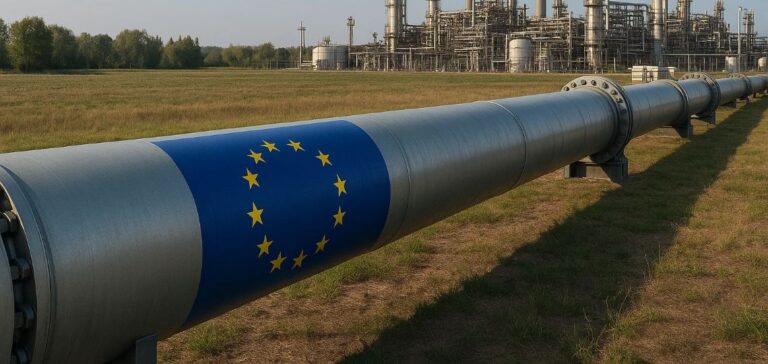The European Union has reaffirmed its commitment to maintaining its ban on Russian gas imports, even in the event of a resolution to the conflict in Ukraine. On May 13, Dan Jørgensen, the European Commissioner for Energy, stated that this policy would remain unchanged, describing the EU’s roadmap to gradually eliminate energy dependence on Russia as “very clear” and “independent” from peace talks. The goal remains to reduce Russian gas imports to zero by the end of 2027.
Jørgensen emphasized that the European Commission (EC) did not wish to import a “single molecule” of gas from Russia in the future. This is part of a broader plan to diversify the EU’s energy supply sources and strengthen the region’s energy security. The EC is set to submit legislative proposals in June to ban existing Russian gas contracts by 2025 and eliminate imports under long-term contracts by 2027.
The Challenge for Some EU Countries
Despite this ambitious approach, some EU countries, such as Hungary and Slovakia, have voiced strong objections. These countries remain heavily dependent on Russian gas, particularly through long-term contracts. Hungary signed an agreement with Gazprom in 2021 to secure gas supplies for the next 15 years, a contract that continues to meet its energy needs. In response to the EC’s proposal, Hungary called the decision a “grave mistake,” arguing that it could compromise the country’s energy security and drive up energy prices.
Meanwhile, Slovakia, which also ceased its Russian gas imports via Ukraine at the end of 2024, faces difficulties in diversifying its energy sources. The country now relies on gas delivered through the TurkStream pipeline, coming from Russia, but the volumes are insufficient to meet its needs. The Slovak Ministry of Economy stated that alternatives to Russian gas were insufficient to fully replace the supply, making the proposed bans problematic.
A Long-Term Energy Policy
The EU’s strategy is part of a broader framework aimed at enhancing Europe’s energy resilience in the face of geopolitical crises. The European Commission’s plan focuses on a dual approach: reducing dependence on Russian gas while accelerating investments in renewable energy and energy efficiency. However, the EU will have to navigate between its climate ambitions and the economic and geopolitical realities of its member states, particularly those most dependent on Russian gas.
Although the energy transition plan is ambitious, it faces significant internal resistance, and discussions about its funding and deployment will continue in the months to come.






















